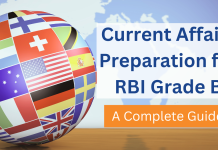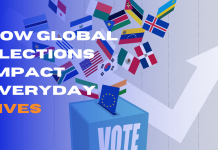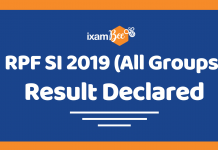Artificial intelligence popularly known as AI, is altering industries and reshaping everything from customer service to decision-making. However, as AI technology grows more powerful, government regulations are being put in place. So, what steps are countries taking to manage this new tech revolution? Let’s consider how AI regulations are affecting businesses in the world through the blog given below.

Why AI Regulation Matters
Incredible though AI is, it brings with it the burden of great weighty responsibilities. When not monitored properly, AI can lead to shifting job opportunities, partiality in decision-making, and insecurity. The government is trying to strike a balance by considering the value of AI for business and the legal implications of its actions.
How Countries Are Regulating AI
Let’s take a look at how different countries are checking AI usage.
United States: A Sector-Specific Approach
- America has favored a decentralized approach to regulating artificial intelligence. Rather than implementing a singular AI law, the government has allowed individual industries to regulate themselves.
- Federal Trade Commission involves monitoring AI for consumer protection and anti-competitive practices.
- In addition to this, the FDA supervises AI in healthcare.
- National Institute of Standards and Technology (NIST) is on track to build AI risk management framework.
Yet, some states like California lead the charge with more stringent AI laws, especially about data privacy and automated decision-making. Along with that, the Biden administration had earlier issued executive orders to promote ethical AI development.
European Union: The AI Act
- The European Union is leading with AI Act, which is considered a pioneering framework aimed at categorizing AI systems depending on the risk level.
- Unacceptable risk AI systems posing serious harm (e.g., mass surveillance) are banned.
- High risk: AI in hiring law enforcement, and healthcare must be held to strict standards.
- Small amount of risk: AI, which is able to interact with people (like chatter bots), should be provided with transparency
- Minimum risk: AI in areas such as video games has a low barrier.
The approach allows business to not quell innovation through the unchecked use of AI.
China: Strict Control and Innovation
- China is welcoming AI with government oversight. China has begun introducing regulations ensuring AI aligns with national interests.
- AI-generated content must be identifiable.
- Censorship laws are strict in the use of AI in social media and news.
- Companies developing AI are bound to forward the security assessments.
Even with these factors, China is committed to AI research with major plans for AI leadership by 2030.
United Kingdom: A Flexible Framework
- UK is adopting a business-friendly approach. Their focus is on innovation and simultaneously they are ensuring accountability. The UK government did not propose rigid laws, but they proposed a few principles instead.
- AI should be safe and fair for all users.
- Companies ought to be forthcoming about the decision-making process involved in AI.
- AI needs to be able to provide human oversight to avoid unethical practices.
This tactic lets companies expand without encountering too many legal hurdles.
Canada: Ethical AI Development
Canada is a world leader in research on ethical AI. Artificial Intelligence and Data Act (AIDA) has been introduced by the government to control AI’s effect on human rights and privacy. The businesses that use AI should.
- Conduct risk assessments.
- Provide clear explanations for AI decisions.
- Follow ethical guidelines for AI deployment.
Funding AI research in Canada is another way to stay ahead. This way businesses can keep their technology up to date and continue to grow, while also reinforcing a public trust
India: A Focus on AI for Growth
India is adopting a business-friendly attitude. The state encourages AI development, but at the same time tightly regulates the process. India’s AI strategy includes:
- Incentivizing AI integration in agriculture public health and financial sectors.
- Creating ethical AI guidelines for businesses.
- Balancing innovation with privacy protections.
The approach in India gives priority to economic growth with a responsible use of AI.
Challenges in AI Regulation
AI is by no means an easy element for regulation despite global endeavors. Among the major challenges faced:
- Staying ahead of the curve: The technology of AI is developing rapidly, and laws cannot keep up with it.
- Balancing regulation and innovation: Over-regulation can strangle business growth. At the same time, under-regulation can lead to abuse.
- Everywhere inconsistency: each country has its own AI laws. This makes international businesses’ compliance with regulations difficult.
What’s Next for AI Regulation?
The AI will evolve more and more in the future, and less and less human intervention will be needed. This means that regulations and policies that are already
- Stronger data privacy laws: Stricter regulations will be introduced for AI systems that process personal data.
- Bigger transparency demands. Companies will have to provide explanation to show why AI systems have made the decision.
- Evolving ethical guidelines: The government is likely to push for AI that prioritizes fairness and accountability.
Summing Up
AI is transforming business and regulations are being updated. The importance of understanding these regulations applies to everyone. If you own a business, if you love tech or if you are simply curious about AI’s future, you need to be updated. In what way do you think the regulation of AI will shape the business world? One thing’s for sure, the future of AI is being written and it’s a story worth following.
ixamBee specializes in providing expert guidance and resources for banking exams 2025, ensuring that you are well-prepared for the Upcoming Bank Exams like RBI Grade B, NABARD Grade B, IBPS SO, and more. Our courses align with the bank exam calendar 2024, covering all the essential topics. With a focus on the upcoming bank jobs, our Previous Year Papers, BeePedia, SSC CGL, SSC CHSL, SSC MTS and other Mock Tests are designed to help you excel in upcoming banking exams.
Also Read:
The World’s Biggest Economies: Who’s Leading in 2025?
The Rise of Digital Currencies and Their Global Adoption
The Power of Social Media in International Politics













